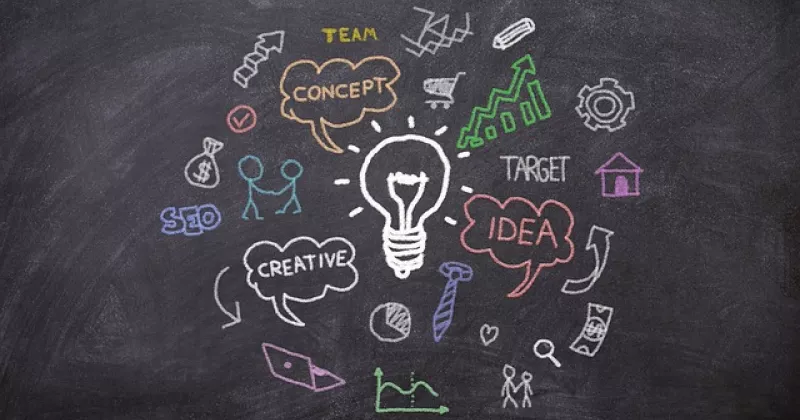Development of Elderly's Digital Skills Through Family Learning
Rapid economic, technological and social changes motivate people to adjust to new situations in their life. However, unfavourable circumstances, such as age-related lower skills and motivation to learn, for many block their integration. A great deal of elderly people living all over Europe desires to improve the quality of their life but unfavourable do not know how to do that: they lack skills and knowledge, strong beliefs of them being too old or not smart enough stop their progress. They luck skills in different fields of modern life, but most of all they need to improve their digital competencies. The elderly often have fewer qualifications in the technology sector. Because of that, they cannot withstand competition in the labour market; they also are unable to take full advantage of public services and virtual communication. As a result, their quality of life is affected.
Practice shows that older people acquire digital competencies not only through non-formal but also through informal learning. More and more often not only specialized institutions serve as venues of late-life learning (adults training centres or third age universities), but also libraries, NGO’s or other community organizations take up the same role. Qualification of the staff of these institutions has to be continuously improved to ensure good assistance to the elderly.
The lack of digital skills is becoming a major problem. Organization for Economic Co-operation and Development (OECD) has researched 33 countries representing various regions and proved that a big part of adults is not using the opportunities available in a digital environment. The research revealed that even though the general competencies of the population in many regions are sufficient, problem-solving skills invoking technologies are low. Old people are most behind as they experience specific challenges:
- Elderly do not trust technologies as think they are designed for the youth. They fear the transformed world: although they cannot deny the changes, they choose to ignore and criticize them. Fears come from the lack of knowledge – only a computer is seen, but it is not understood that much bigger ICT power lies in an intangible virtual environment.
- Older people feel that youth do not trust them and are sceptical about their ability to learn. This reduces seniors’ self-esteem and motivation.
- Adult educators lack ideas of how to develop digital skills for the elderly. Traditional learning may not always be suitable for them; too much attention is still paid to the theoretical knowledge while leaving the social skills behind. Modern educational methods, engaging digital content are rarely adapted in adults training. Because of that, it is difficult to attract seniors’ attention and involve them in learning programs.
To deal with these challenges, it is important to create new training models expanding the synergy of various adults training institutions and improving staff competencies. With this purpose, six organizations from Lithuania, Estonia, Bulgaria, Italy, Spain and Turkey joined their forces for an Erasmus+ project Development of Elderly's Digital Skills Through Family Learning (No. 2020-1-LT01-KA204-077965).
The project aims to improve project partner institutions’ potential in the development of the elderly digital skills empowering adults’ educators to promote and organize family learning.
This type of learning is becoming increasingly popular around the world as it provides a range of opportunities for families in the widest sense (children, parents, carers, grandparents) to learn together to raise skills across generations. Many institutions such as libraries, adult education centres, museums, NGO‘s, clubs provide inter-generational programmes separately or in partnership enabling families to learn in a relaxed and fun atmosphere. For many adults, family learning can be the first step to taking up further learning opportunities. Family learning is also extremely important because of its dual effect. It leads to improvements in skills as well as to intergenerational communion, develops moral values and positive attitudes towards education, uplifts mood and has a huge impact on health, family relations and lifelong learning.
To reach the task the specific objectives are planned:
- To organize four international training/experience exchange events with the purpose to improve the competencies of adults’ trainers.
- To collect and share information about intergenerational and family training programs offered in partner institutions, to identify examples of innovative experience.
- To generate new ideas for family training/learning and test them with target groups in this way increasing the variety of training topics and programs in partner institutions.
- To encourage partnership at the institutional and international level laying the groundwork for future collaboration and possible new projects.
International experience exchange is purposive in this context. The cultural background and experiences in all countries differ, but the programs performed in each country can be employed by other partners as well. For example, people from Southern countries (Italy, Spain, Bulgaria, Turkey) have stronger family ties, but in Northern countries (Estonia, Lithuania), development of digital skills is at a more advanced level. Combining different experiences and approaches will create new and successful models of digital skills development.
The unique aspect of the project is that it will transform the attitude towards existing digital competencies development practices:
- It will encourage understanding that digital literacy is not just about functional ICT skills, but also about having the skills and competencies to use digital technologies to communicate, collaborate, and be active citizens within local communities and wider society. It will be aimed digital literacy would be understood in a broader sense – as a positive aspect for continuous technological development.
- It will encourage learning together with family members. Learning in families offers a wide range of benefits: from formal and measurable outcomes, such as children‘s educational achievements and adults gaining employment, to more holistic and subjective outcomes, such as developing confidence and enabling more cohesive communities.
- It will prompt intergenerational learning. Many public and private spaces are segregated by age and there are limited interaction opportunities for different generations. This leads to fragmented communities and contributes towards creating fear and negativity among different age groups. Many older adults are not as familiar as the younger generation with the learning and interaction opportunities new technologies offer. In return, the older generation may have more time to offer to support younger people in encouraging them to progress in their learning process.
The project will support a learning environment in which older and younger people mutually generate and share cultural artefacts. Technology provides an important context for intergenerational learning as it is a domain of interest for all age groups. However, different generations have a different level of experience using technologies and that can serve as a mean to support the capture, creation and sharing of content. Together with digital competencies, moral values, such as respect for cultural and national identity, will be developed.
At the end of the project implementation, the experience of the partners, descriptions of new ideas, and experiences of pilot training will be compiled and published in the format of a virtual journal. We will offer it to the whole EPALE community.

The European Commission’s support does not constitute an endorsement of the contents, which reflect the views only of the authors, and the Commission cannot be held responsible for any use, which may be made of the information contained therein.






Really good methodology
Family learning is an innovative and motivating way to learn digital skills for older people. The new training models developed during the project are really good and aimed at the target group.